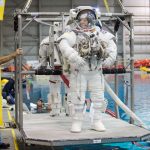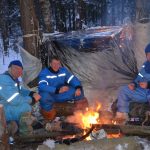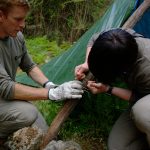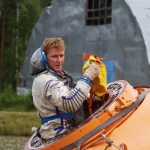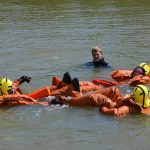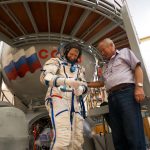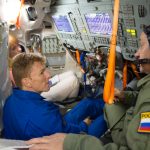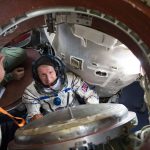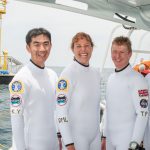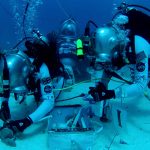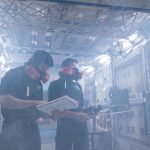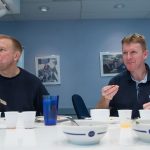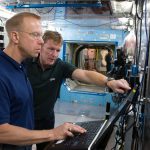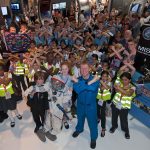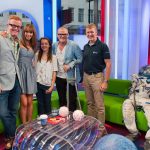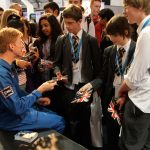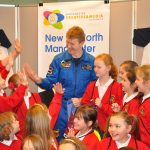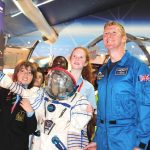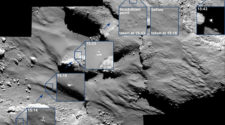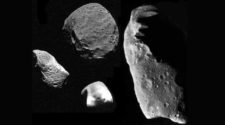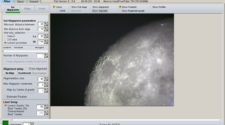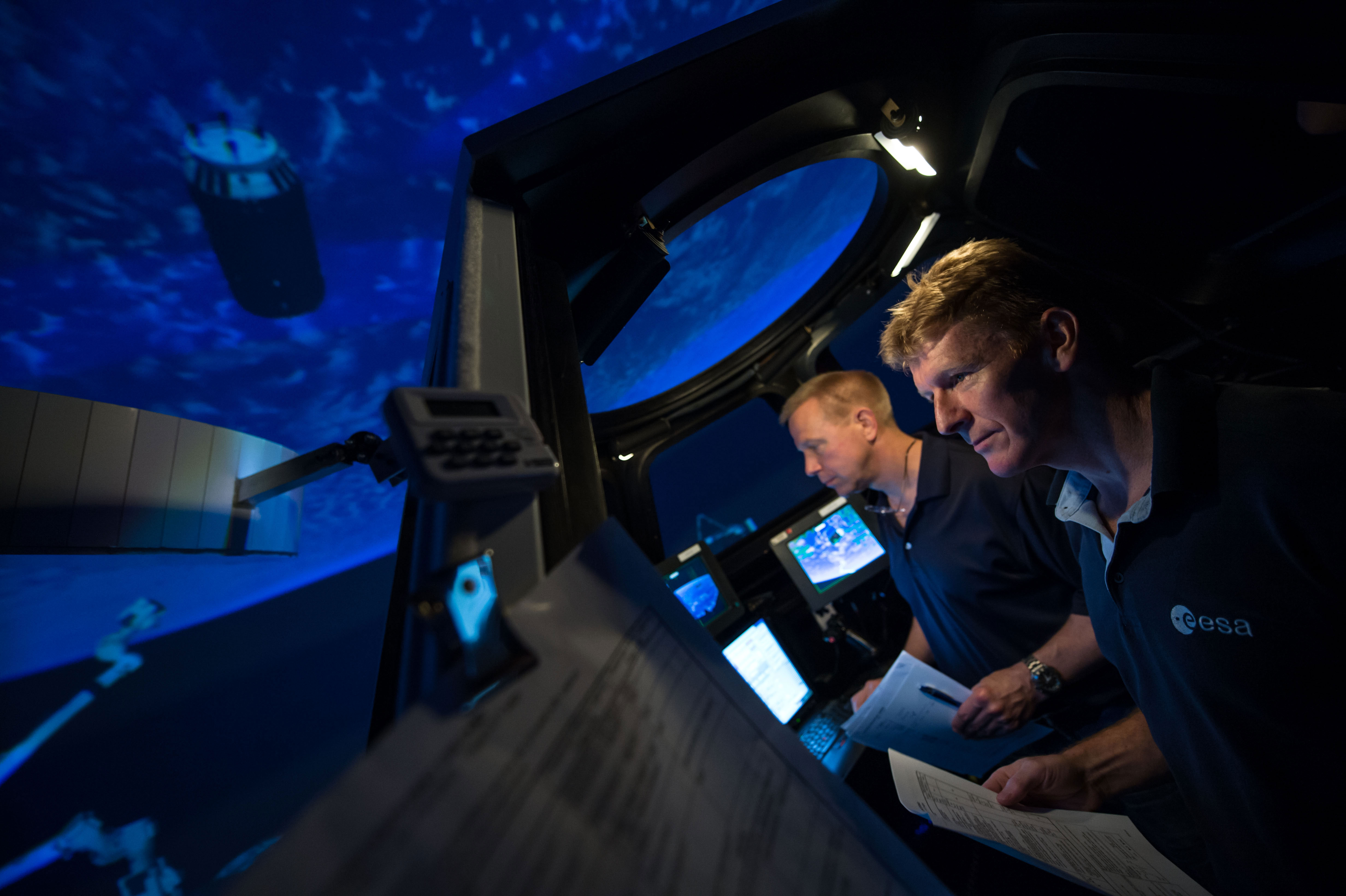
On 20th November this year, a Union Jack Flag will be safely stored on board a Soyuz rocket, and, along with its owner, will launch from the Baikonur Cosmodrome in Kazakhstan and make its way to the International Space Station.
This is not the first time that a British born citizen has flown in space, but it will be the first time a Briton will launch without the need for private funding of any sort, or having to take American citizenship. The mission will also be the first time a UK astronaut has flown and worked on the ISS as a member of the European Space Agency Astronaut Corps, and the first time a Briton has flown in space for over 20 years.
Early life
Timothy Peake was born 7 April 1972 in Chichester, England. He was educated at Chichester High School for Boys, and on leaving school a career in the British Army beckoned. Having graduated from Sandhurst Military Academy in 1992, a successful career in the Army Air Corps followed.
A qualified helicopter pilot and test pilot, Peake is well equipped for the rigorous training all astronauts must undertake before they are allocated a mission in space. His military background and ability to work under pressure will stand him in good stead for the training he has to complete, and the six-month-long mission he will undertake later in the year.
Despite having a thriving space industry, the UK has never invested in its own manned spaceflight programme. Unmanned space research has been the priority of the UK’s space industry along with various commercial initiatives. Opportunities for aspiring UK astronauts to launch and work in space alongside the astronauts from other countries and agencies were few and far between.
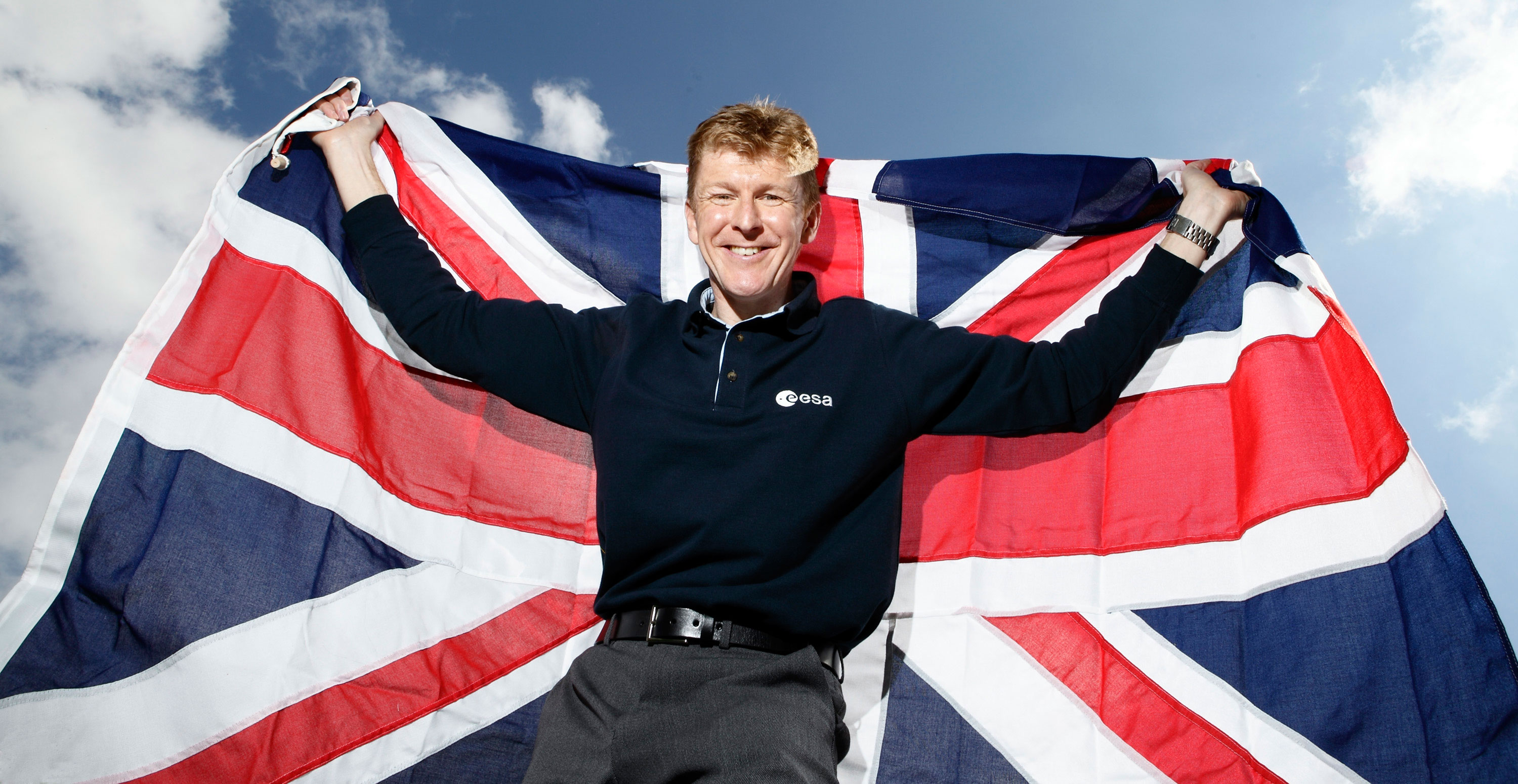
European Space Agency
However, thanks to the European Space Agency announcement that a new class of astronauts was to be selected, and UK citizens could apply, Tim Peake applied to ESA in 2008. Along with many other potential astronaut candidates, he went on to partake in a long and often gruelling selection process that would culminate in a phone call coming through on May 18 2009. On a balmy spring evening, the news he had hoped for was relayed to him – Tim had been successful in his tests and interviews and he was therefore being invited to join the European Space Agency Astronaut Corps, making him the first Briton in the history of ESA to do so.
On 20th May 2013, four years after Tim began his astronaut training, David Willetts (UK Minister for Universities and Science) announced at an eagerly anticipated press conference that Tim had been assigned a 6 month mission to the ISS, joining crew members on Expedition 46/47 with an expected launch date of Nov 2015.
“This is a landmark moment for Britain and our reputation as a leading science nation,” said Willets. “Not only will we have the first UK astronaut for over two decades, but Tim Peake will be the first ever Briton to carry out ground-breaking research on the space station.”
“I’m absolutely delighted by the decision,”exclaimed Peake. “It really is a tremendous privilege to be assigned to a long duration mission to the ISS.”
Training underground…
As part of his extensive astronaut training programme, Tim joined a team who would, for five days, test human endurance and capabilities. In 2011, he and five other astronauts joined an international mission, living in and exploring cave systems in Sardinia. This mission enabled them to study how humans react to living in extreme conditions with very little privacy and in complete isolation from the outside world. This expedition which simulated space exploration, gave the team an idea of what they could expect and how they would cope in the confined space of the ISS.

…and below the ocean waves
NASA’s NEEMO (Extreme Environment Mission Operations) gives space agencies from around the world the unique opportunity to study and test various technologies that are used, or could be used in space whilst gaining valuable information on the behaviour of crews on long missions. Similar to Tim’s cave training in Sardinia, it also simulates the often harsh conditions found in space giving astronauts the chance to discover their strengths and weaknesses whilst living in difficult conditions.
Following on from his visit to the caves of Sardinia, Peake ventured further afield to Florida, where he became the first ESA astronaut to experience the NEEMO Mission. Based off the Florida coast in the Key Largo National Marine Sanctuary, the underwater habitat of the Aquarius laboratory became Tim’s home for two weeks. With the rest of his crew, he helped develop tools and technologies that may be used on a future crewed mission to an asteroid, planet or moon.
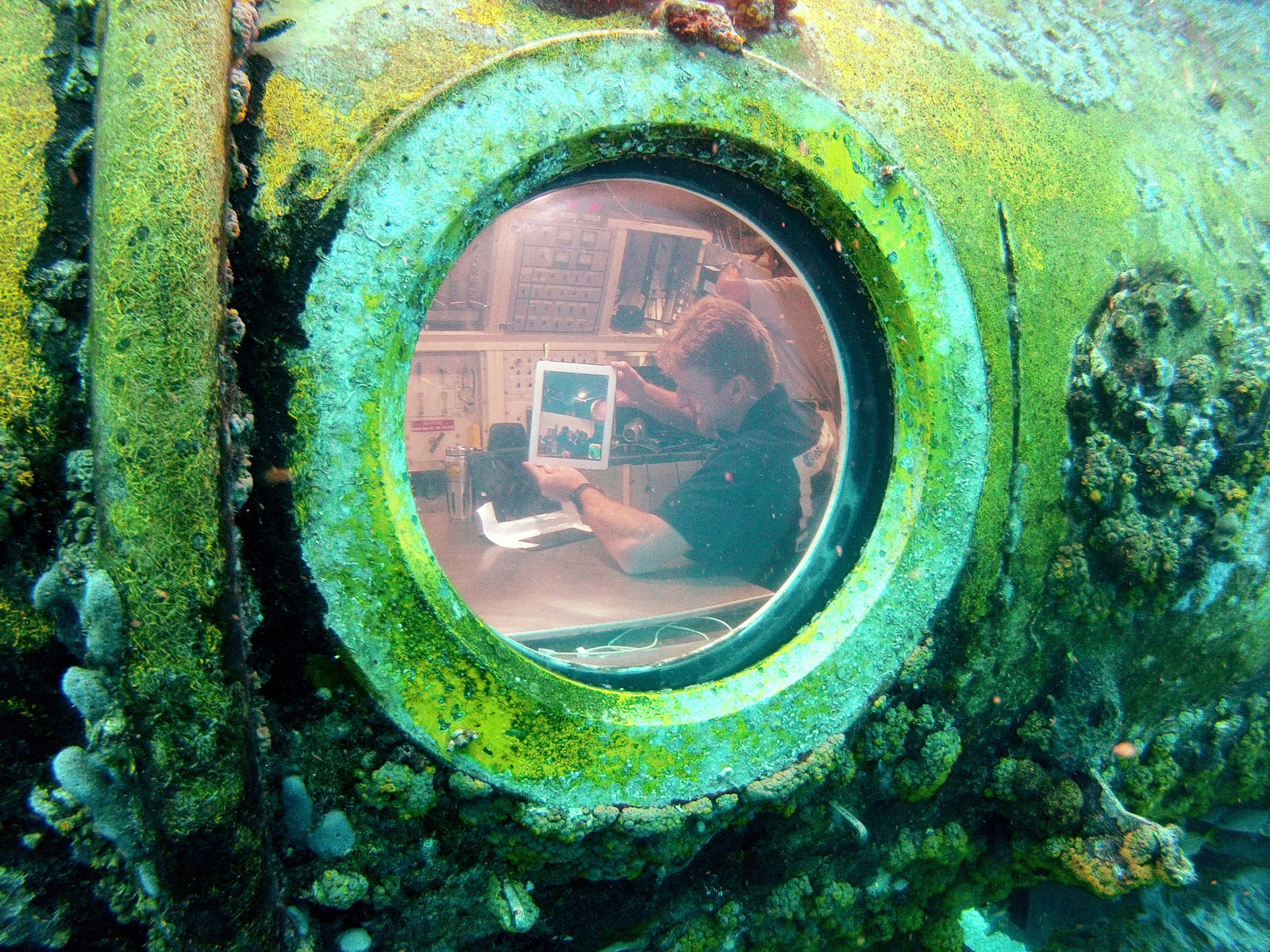
STEM and engaging young minds
Tim has always been a supporter and advocate of STEM subjects, and STEM Outreach, and his keen and vocal support for these was rewarded in 2009 as he was appointed an ambassador for UK Science and space-based careers. It is through this position that he is able to actively promote the STEM subjects to youngsters throughout the UK and further afield.
Due to his passion for STEM Outreach, and his enthusiasm to get children and older students involved in his mission, Tim has been able to launch a number of competitions here in the UK.
The ‘Great British Space Dinner’ competition, which ran last year, gave children the opportunity to come up with a well-balanced meal that Tim could enjoy on the ISS. It also gave young people the chance to think about nutrition, and how important food is to astronauts whilst they are in space.
Along with popular children’s programme ‘Blue Peter’, the ESA and UKSA called upon schoolchildren of the UK to design the mission patch for Tim’s Principia Mission. Both of these competitions were met with a huge deal of excitement and flair, proving that Tim’s mission is gathering plenty of support and interest not only from adults but young people.
More recently, Tim, along with UK Space organisations and Raspberry Pi have offered students of all ages the unique opportunity to devise an app or experiment to run in space.
It is because of ventures such as these, that young people can hopefully see how stimulating and rewarding a career in STEM subjects can be, with Tim doing everything he can to engage and inspire school children and students in all corners of the UK, Europe and beyond.
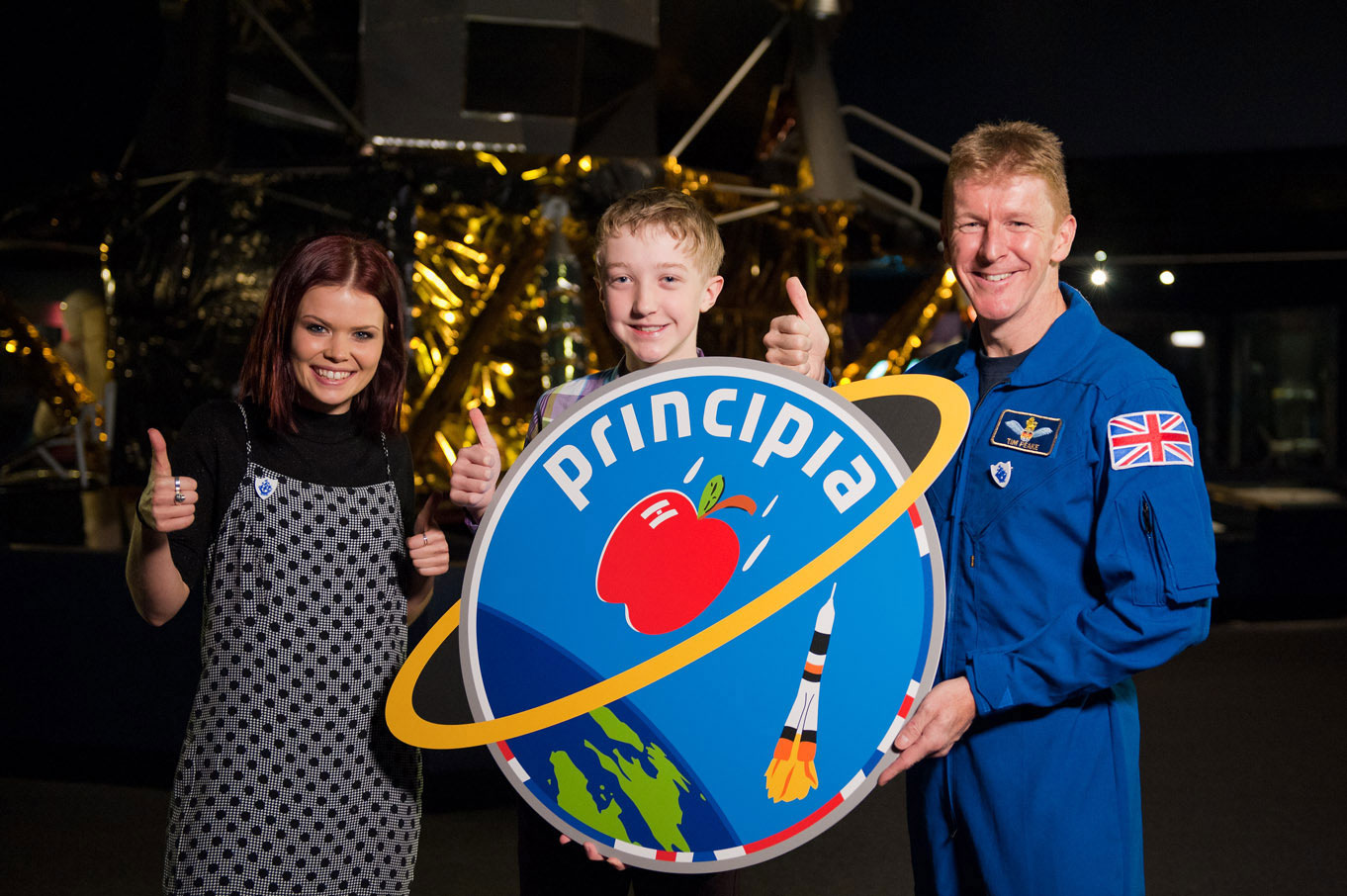
Tim visited London in November 2014, and RocketSTEM had the opportunity to interview him about his upcoming mission and STEM outreach.
RocketSTEM: You have engaged with children and captivated their imaginations by involving them in your missions, with a number of competitions such as ‘design a mission patch’ and design a meal for the ISS’. How important is it to you that children (especially those in the UK who may not be aware of your mission or the UK Space Agency) are involved in what you do, and what impact do you hope your mission will have on them?
Timothy PEAKE: “I can hope to have an inspirational impact on young people. I remember being really enthused by space and space travel, and also aviation. I hope that by having the same effect on young people we can encourage them to look at science and also look at engineering and exploration, to see it as an exciting career path, and study the relative subjects you need to have.”
RS: STEM subjects and careers are obviously very important and, and getting children interested in these subjects at an early age is extremely crucial. Will children be able to participate in any of the experiments you are doing on the ISS, or even recreate them in the classroom so they can see if the results vary on Earth and in space?
PEAKE: “We are working very closely together (that’s ESA and UK Space Agency) and looking at designing as many competitions as we can and having educational outreach activities whilst making them as interactive as possible. That includes using my time at weekends to do some fun voluntary science, making videos and experiments I can do on the ISS that classrooms can do back on Earth and compare results. So yes, we will be trying to make the most of this mission. It’s a wonderful opportunity and I really hope we can maximise the potential for this mission. The more interactive it can be for students, the better.”
RS: You will be flying the flag for the UK and UK Space Industry whilst you are on the ISS. How do you think your mission will change the way the UK Space Industry is seen by the outside world?
PEAKE: “Obviously this is the first time a UK Astronaut has flown on board the ISS as part of the European Space Agency, so that’s the big thing here. From a government perspective the UK is becoming involved in human space flight and it is something very important. I hope we go on to continue this involvement. So yes, it is very important the UK is part of this as there is so much benefit to be had from ISS research in terms of what we are doing on the ISS for people back on Earth. And also on the ISS for future exploration – looking ahead to those lunar and Mars missions, and deeper into the solar system as we go on.
“I don’t want the UK to miss out on that. ESA has been doing a fantastic job, and will continue to do a fantastic job in Human Spaceflight. I think it is definitely time for the UK to be part of that, and continue to be part of it. It’s only going to get bigger and better.”
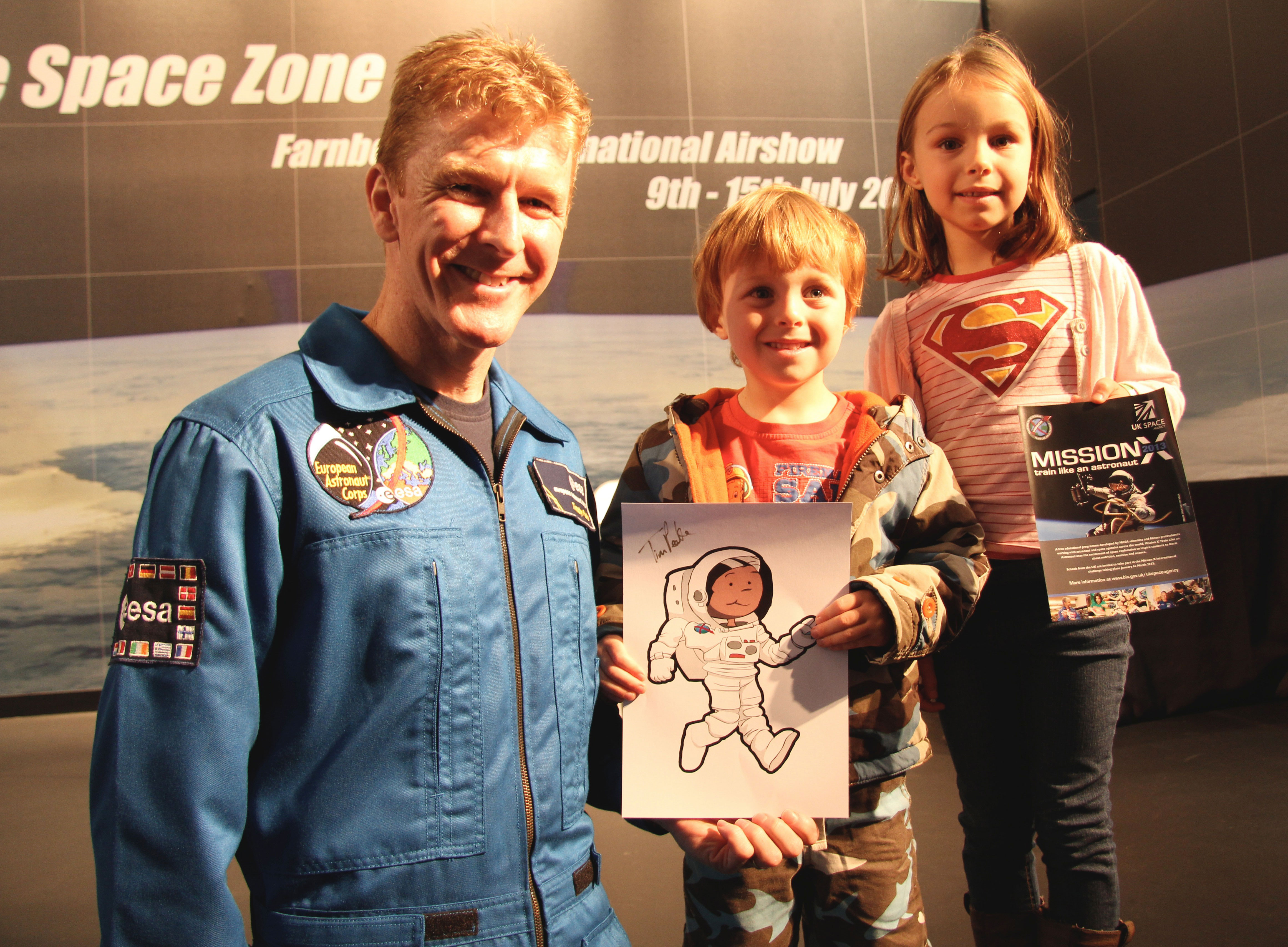
Before I travelled to interview Peake, and knowing how important STEM Outreach is to him, I thought some questions from the young people he is inspiring would be a good idea. Therefore I got in touch with a local junior school to see if they would like some students to think of questions for me to ask him on their behalf. The following questions are from Class 5L, Brockhurst Junior School, Gosport.
RS: Are you under pressure to complete a certain amount of research whilst on the ISS?
PEAKE: “Yes, because crew time is the most valuable resource and there is never enough of it. For every expedition that launches there is always too much to be done and not enough time. So yes, there is pressure to get things done and clearly scientific research is top priority – that is what we have built the ISS for. It is managed in such a way that the crew don’t feel that pressure. The ground teams do a brilliant job of trying to offload that pressure for the crew. Clearly the crew work long days, they are working 7 days a week. They do have some free time on Saturdays and Sundays, but even in free time they are chipping away at jobs. There is a task list and this is the ‘jobs the astronauts could do if you please have the time’ list! So astronauts pretty much work all of the time and because crew time is so valuable you just accept it’s six months where you just work very hard.”
RS: Are you excited or nervous about what you might find from your research?
PEAKE: “Very excited! Not really nervous, although having said that, some of the life science experiments I’m lined up for where they offer to share results could have an impact. For example, I could be told at the end of the mission just how much radiation I have absorbed, and how much my eyesight has changed. There are things that happen to astronauts on the ISS and we are learning all the time about how our bodies adapt to microgravity. I’m not really nervous about that, I’m more interested to see what happens to a human body in space and how we can develop countermeasures for it.”
RS: Will you take any samples from space, and if so, how will you do this?
PEAKE: “I’m not aware of any scientific experiments I’m doing that will involve me taking samples from space. Having said that,there are external experiments on board the ISS right now that remain outside for sometimes months or even years. So the ISS is constantly taking external samples if you like. For example, on the Columbus Module we have the SOLAR experiments, which are taking samples from the Sun so that we can study the Sun cycles. That experiment stays outside for a long time so we can gather data permanently about that.”
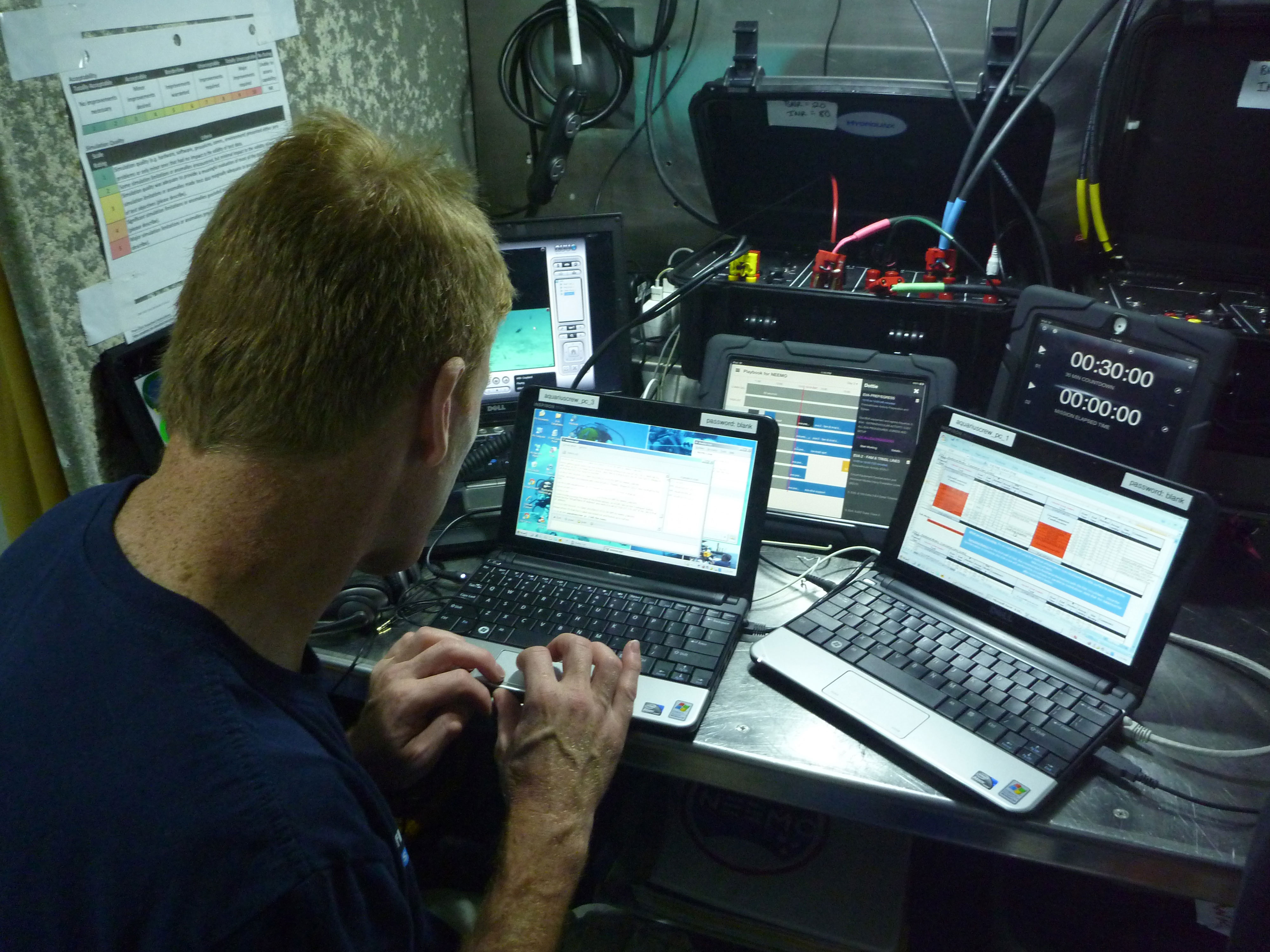
RS: What have you done whilst training?
PEAKE: “Training has been going on for a number of years now. It started with basic training when I was first selected in 2009 and that was for 14 months. It really gets everyone up to speed in the core sciences, introduces you to microgravity – the vomit comet! You start Russian and that continues all the way up to launch.”
RS: How have you found the Russian? Could you speak any before you became an astronaut?
PEAKE: “I’ve found the Russian very challenging as I’m not a natural linguist. But I’ve enjoyed it and I’m at the stage where I can relax and be more conversant.”
RS: What advice do you have for any children who want to become astronauts?
PEAKE: “My advice is to try and find out what it is that you like, and what you enjoy doing as that tends to be what you are good at, and really pursue those activities. Try to do as well as you can at those. If you are keen on becoming an astronaut then you will have an interest in space anyway and it helps to keep up to date with space news, what is going on, what missions are being launched and what the focus of the Space Agency is. Try to get exposure if at all possible to many international environments; working with different cultures and learning languages are a good thing to do. This kind of thing will put you in the best place when there is an astronaut selection.”
Tim Peake has many more months before his launch date, and the training will continue to be intensive, not only at the ESA Headquarters, but in the USA and Russia. The eyes of the world, especially the UK, will be watching as he leaves the Earth on board Soyuz TMA-19M, him and a red, white and blue flag.
I will leave the last word to astronaut Tim Peake…..
“Seeing the Earth from space will undoubtedly be one of the most beautiful and awe-inspiring sights I will ever witness, and will provide a unique perspective from which to reflect on the wonders of our universe and our place in it.”
Follow Peake’s journey online:
Facebook: https://www.facebook.com/ESATimPeake
Twitter: https://twitter.com/astro_timpeake
Flickr: https://www.flickr.com/photos/timpeake
Tim Peake: Training for space

